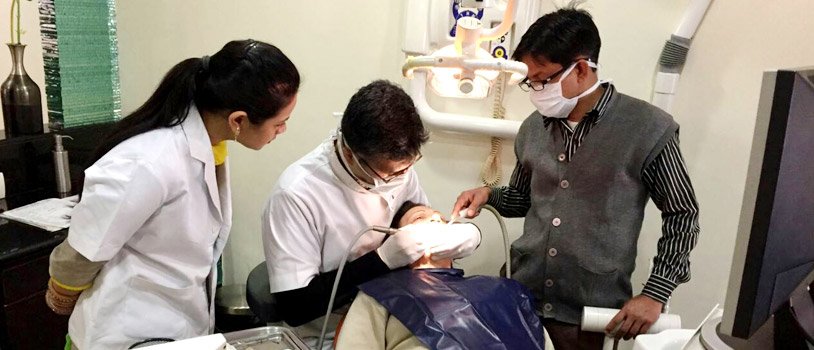Dentistry is one of the most exciting career choices. As part of their education, prevention, diagnosis, and treatment activities, dentists provide the public with an essential health service. Before applying to a faculty of dentistry, you must determine whether your career choice is suitable for you, what the requirements for education and training are, and what opportunities a dental degree can offer you in addition to practising the general rule.
The Dental courses academy profession requires strong artistic skills. Dentistry is widely a meticulous art, which requires precision manual work. Whether lightening a tooth or correcting a complete jaw, dentists must have an aesthetic sense and technical skill to achieve the best possible results.
Dentists rely on their intelligence and experience to determine what is best for their patients. They must consistently make creative decisions to develop treatment plans for their patients and achieve them. To this end, they must take into account some complex factors.
The purpose of a diploma program in Dentistry is about dental care in clinical practice, particularly the latest knowledge. Participants have the opportunity to discuss the latest methods of learning in patients with complex disease care and oral health care for patients with special needs.
Here are some of the Diploma after BDS which are being offered
PG Certificate in Oral Implantology/ PG certificate in Laser Dentistry (Manipal University)
Dental Courses after BDS time- 1 year. The diploma courses comprise 4 contact sessions. Each session lasts for 6 days approximately. The diploma program teaches about the didactic lectures, advanced procedures of Oral implants, and live demonstrations of basic implantology. You need to pass your BDS from a recognized university to get this diploma.
Fellowship in Aesthetic Dentistry
It is another popular Diploma course for BDS graduate students. This diploma provides Dentist practitioners with new educational skills and knowledge and enhances their speciality in the world of Cosmetic Dentistry. The program is highly focused on teaching as well as practising evidence-based principles and systems.
Post-Graduate Certificate in Oral Implantology (PGCOI)
The duration for this diploma course is 1 year (minimum) and offers expertise in the subjects of modern and advanced Implantology. The course covers a broad spectrum of implant treatment methods and is based on teaching-based practice.
Post-Graduate Certificate in Oral Implantology (PGCOI)
- Oral & Maxillofacial Surgery & Oral Implantology
- Conservative Endodontics & Aesthetic Dentistry
- Periodontology & Oral Implantology
- Oral Medicine & Radiology
- Public Health Dentistry & Preventive Dentistry
- Orthodontics & Dentofacial Orthopaedics
- ProsthodonticsbCrown Bridge & Oral Implantology
Post-Graduate Certificate in Endodontics (PGCE)
The candidate must be registered as a BDS doctor and must have completed his/her internship program. His degree should be recognised by the Dental Council of India. It is a one-year certificate program that comprises 30 credits as per university standards and is approved by the Dental Council of India.
Fellowship in Cosmetic Dentistry
This diploma provides general dentists with scientifically based rationality for all diagnosis, treatment, patient care and planning decision. Duration:6 months online, 4 weeks contact program. You get enhanced knowledge of basic oral science and cosmetic dentistry. The course also improves your knowledge about modern aesthetic treatment methods.
Alternatively, one chooses to opt for any of the multiple diploma courses at Dental Clinic in Delhi.
The Delhi dental institute comprises several senior MDS specialists who are well-versed with international standards and have decades of experience of teaching post-graduate students.
Apart from the generic, year-long courses, they have weekend crash courses, integrated dental courses, and various short and long-term dental courses on offer.
Let’s browse through the available dental diploma courses:
Weekend Courses:
- Practical demonstration
- Taught to prepare for typodonts
- Usage of Rotary instruments
Integrated Courses:
- Prosthodontics (Restoration and smile designing)
- Endodontics (Dental pulp and root canal)
- Implantology (Components supporting prosthesis and dental implants)
Short and Long-Term Courses:
- Restorative and Aesthetic Dentistry
- Extensive Endodontics
- Dental Implants
- Rotary Endodontics
- Prosthodontics (Fixed and Removed)
- Laser Dentistry

